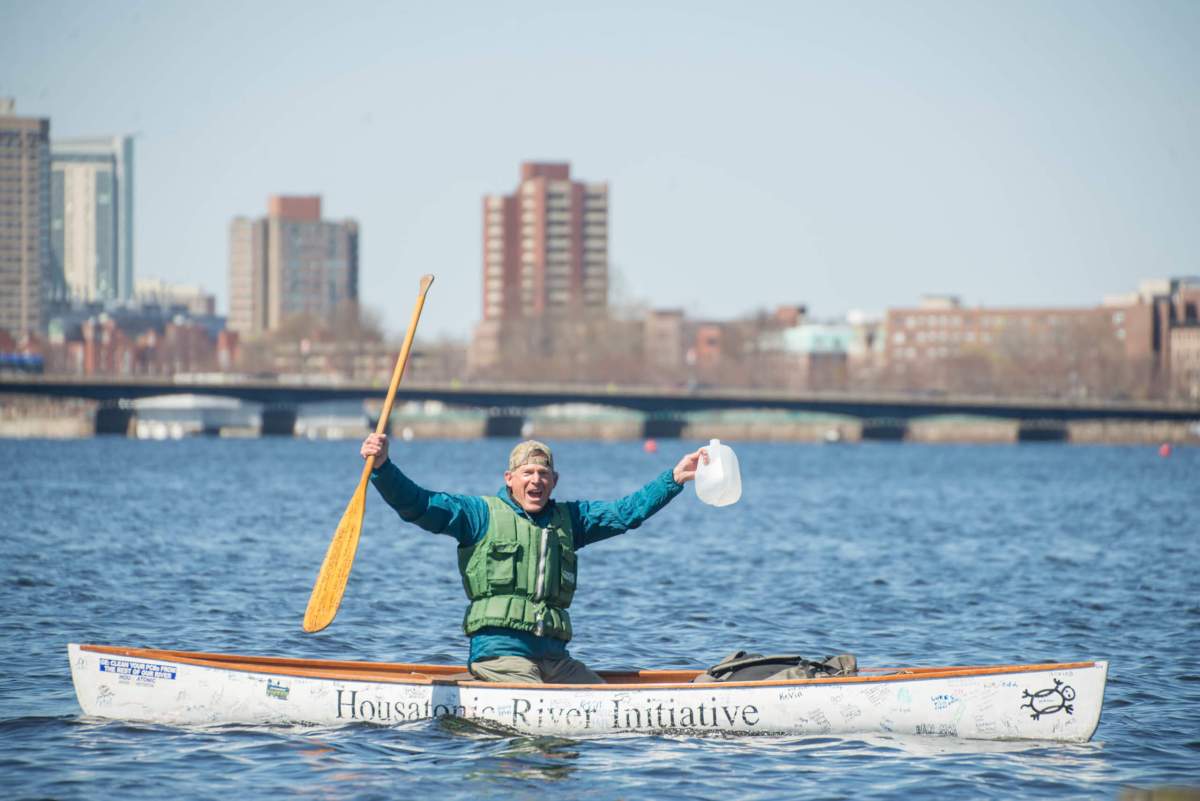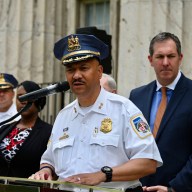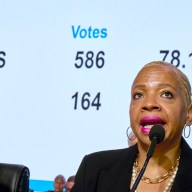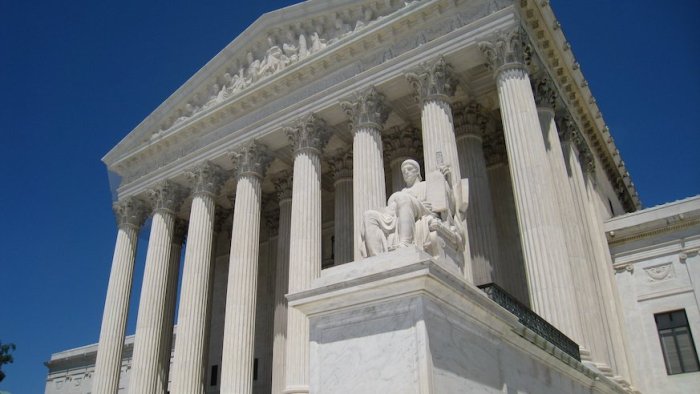A Berkshires grandfather paddled ashore at the bank of the Charles River on Wednesday, the last stop on his 250-mile journey by canoe to advocate for clean water in Massachusetts.
“Heal the Housatonic!” 69-year-old Denny Alsop of Stockbridge shouted as he drifted toward the city’s riverbank, a month after starting out in Sheffield. This was Alsop’s second time boating the state’s rivers to make a statement about waterways. His last cross-state trip was in 1988. This time, he said, it was outrage about General Electric that convinced him he needed to re-create the journey. The company plans to move its headquarters to Boston and is in a battle with regulators over the cleanup of toxins from a GE factory in the Housatonic River. RELATED: GE promises jobs, innovation, prestige will come with move to Boston “I didn’t plan this,” he said. “The canoe was in my father’s barn with droppings from the barn swallows and I went over there and pulled it out and I looked at it. There was a hole in it, which I had to patch. It was a last-minute thing. Also my body was not in great shape. But it’s pretty good now.” Alsop floated through chilly conditions and navigated terrain that was sometimes calm and sometimes trapped him for hours in tangles of branches and other obstacles, he said. He slept near the water in a tent. The highlight, he said, was meeting kind strangers along the way. A lot has changed in the nearly 30 years since he last made the trip, he said.
“The water looks better,” he said. “But it’s still poison.”
He also said he will haul his canoe through Boston streets to the Fort Point neighborhood, where GE plans to build its new headquarters, then read an open letter to the company’s executives.
GE has fought back against the Environmental Protection Agency’s latest demandsin the cleanup of pollution in the Housatonic River, which came from a now inactive GE plant in Pittsfield. Among other objections, the company has said it does not think it should have to pay to truck toxic sediment dredged from the river out of state, and insists it should be allowed to dump that waste in a facility close to the cleanup area. Neighbors have opposed storing the toxic material locally.
GE has undertaken a cleanup of a 2-mile stretch of the river near the old facility and is in negotiations with the EPA about cleaning up further along.
RELATED:GE deal might let company not pay rent for 20 years The toxins that have environmentalists concerned are polychlorinated biphenyls, or PCBs, chemicals the EPA banned in 1979 and whichhave been linked to cancerand other ailments. GE CEO Jeff Immelt defended his company earlier this month, and said executives should be able to weigh in on the best way to conduct the massive project.
“We have just completed a huge dredging project on the Hudson River. We’ve spent a half a billion dollars on the first project on the Housatonic. It’s our intention to work well with the governor and with the EPA and do another successful project on the Housatonic,” Immelt said at a news conference on relocating to Boston. “We’ve done more dredging than any other company on earth, I’d have to say.” Tim Gray, executive director of the Housatonic River Initiative, fired back at that statement.
“That’s probably true because they polluted more river in the world to dredge, so they got themselves into this,” he said, adding that the EPA forced them to pay for the project.
Joining Alsop at the Esplanade Wednesday were children from a Berkshires elementary school, which is located near a site where GE seeks to store toxic material from the river.
Families living near the river have been following Alsop’s journey over the past month.
The trip was meant not just to put more pressure on government to clamp down on GE, but to prioritize issues related to water and the environment more generally, speakers at a riverside press conference said. RELATED:Marine debris cleanup scoops trash out of the once-filthy Harbor Activists also called for other protections, among them steps to limit toxic runoff from parking lots and from fertilizers.
“Massachusetts waterways from the Housatonic to the Charles are a big part of what makes this state such a great place to live,” said Ben Hellerstein, state director for Environment Massachusetts. “All of us have the duty and the responsibility to do everything we can to make sure our waterways are protected from pollution.”
Berkshires grandfather finishes monthlong canoe trip to Boston

Derek Kouyoumjian/Metro


















